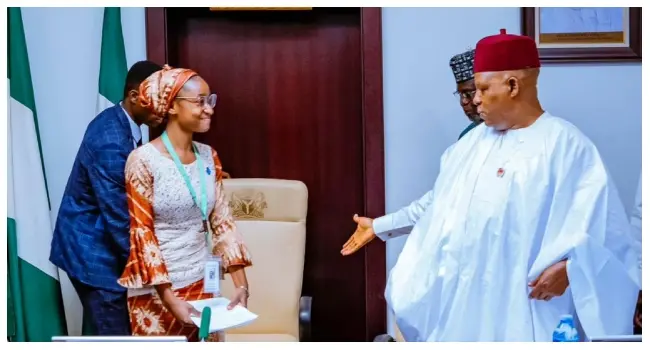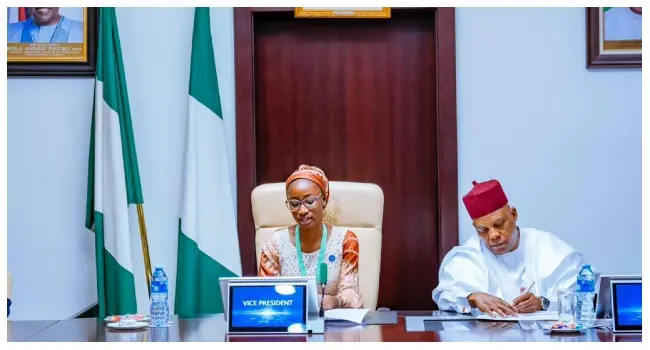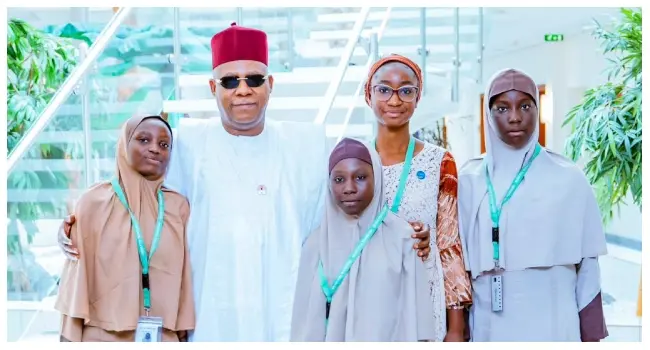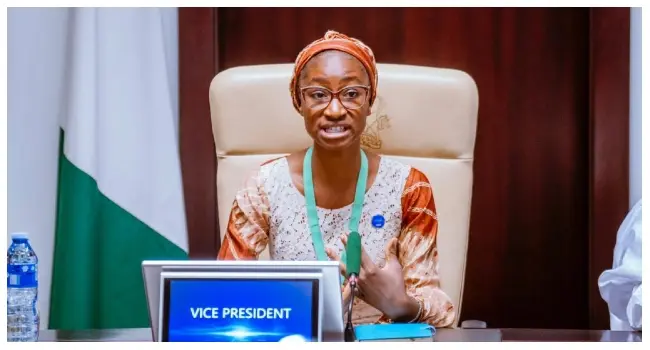A teenager, Joy Ogah, on Monday symbolically assumed the seat of Vice President Kashim Shettima to advocate for girls’ rights and education across Nigeria.
The symbolic handover took place during a meeting between Shettima and a delegation from PLAN International, led by Helen Mfonobong Idiong, Director of Programme, Quality, and Innovation, according to a statement from the Office of the Vice President on Tuesday.
Speaking from the Vice President’s chair, Ogah spotlighted the alarming number of out-of-school children—over 10.5 million—with girls accounting for more than 60 percent.

“We must invest in education that is safe and inclusive for every child in Nigeria,” she urged, calling on government and stakeholders to prioritise initiatives that protect and empower girls.
Ogah also advocated for free sanitary products in schools, improved access to clean water and sanitation, and better nutrition. “Every girl deserves a classroom, a choice, and dignity—not silence,” she said.
“When girls are protected, peace becomes possible. I may be Vice President for a day, but the struggles I represent must live on in our policies, classrooms, and budgets,” she added.

Vice President Shettima commended her advocacy and reaffirmed the Tinubu administration’s commitment to inclusive education.
“We will continue to work with PLAN International and channel government resources where they can make the most impact,” he said. “In President Bola Tinubu, you have an ally you can believe in.”
The visit comes amid renewed national focus on gender equity in education. Advocacy groups, during the October 20, 2025 #FreeNnamdiKanuNow protest, also called for greater investment in girl-child education and mentorship.

Additionally, the Federal Government’s Renewed Hope Social Impact Interventions (RH-SII774), launched in September, targets over 10 million women across Nigeria’s 774 local government areas with livelihood grants, digital inclusion, and clean energy projects.
Recent initiatives—including the Student Loans Act, increased education funding, and inclusive education workshops—further signal the government’s growing commitment to gender equity in learning, echoing the core message of Ogah’s one-day leadership role.


